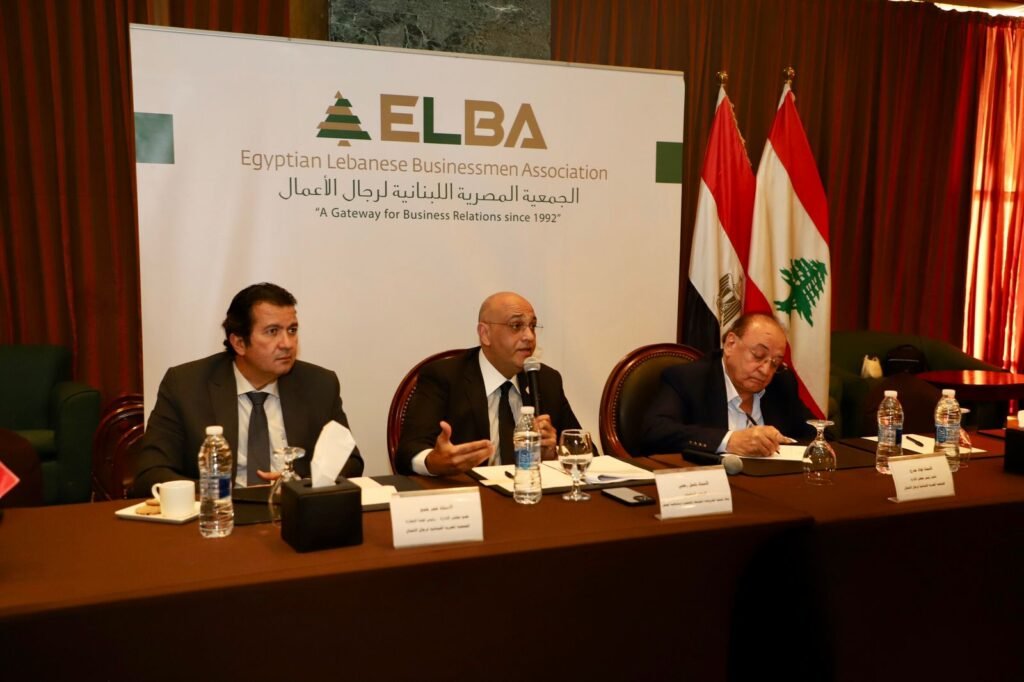Basil Rahmi, CEO of the Small and Medium Enterprise Development Authority (MSMEDA), revealed that between 2014 and 2024, his agency injected 51 billion Egyptian pounds into the economy, directly benefiting three million customers. Notably, 47 percent of these funds were directed to Upper Egypt, with women entrepreneurs receiving 45 percent of the total allocation.
Rahmi made the announcement during a seminar organized by the Egyptian-Lebanese Businessmen’s Association (ELBA), which highlighted the vital role of small and medium-sized enterprises in economic development and explored ways to support them and start-ups.
Furthermore, Rahmi highlighted MSMEDA’s contribution of 3 billion Egyptian pounds for infrastructure projects, including road construction, school development, and the Decent Life Initiative.
The CEO welcomed the partnership with the Egyptian-Lebanese Businessmen’s Association to promote the growth of small and medium-sized enterprises and stimulate youth entrepreneurship. He stressed the importance of such cooperation in improving Law No. 152 of 2020, the amendments of which are underway to include three new articles and a national strategy for traditional crafts, in line with President Abdel Fattah Al-Sisi’s vision.
These amendments are aimed at strengthening MSMEDA’s capacity to protect and encourage businesses in the formal economy by providing benefits in terms of taxation, customs, insurance and civil protection. Rahmi also likened MSMEDA’s governance structure, which includes seven ministries and is chaired by the prime minister, to a “mini cabinet.”
The first amendment targets artisans and encourages their integration into the formal sector through tax incentives, financial support, training and exhibition opportunities such as Turathna, aiming to reach 3.5 to 4 million customers with a training budget of 5 million Egyptian pounds.
Subsequent amendments have focused on freelancers and startups, especially those innovating in developing products and services such as mobile applications. Rahmi announced that MSMEDA has raised $50 million from a European bank specializing in startup ventures.
Rahmi finally outlined the law’s provisions that provide many benefits to SMEs, including tax incentives, access to finance and land acquisition. The law stipulates that 30 percent of land in industrial parks, or 4,200 complexes, will be reserved for SMEs for lease or purchase. In addition, SMEs are entitled to 40 percent of government procurement, totaling 355 billion Egyptian pounds, and the import ban on some 149 products has created significant investment opportunities in the manufacturing sector.
Fouad Hedrj, Vice Chairman of ELBA, affirmed the association’s commitment to fostering cooperation between the private sector and MSMEDA, a partnership that is crucial for sustainable development and creating job opportunities for Egyptian youth.
Hedri believes that such cooperation will help achieve mutual objectives, improve the investment climate, boost economic growth and foster youth entrepreneurship through financial assistance, training, marketing support and strengthening production capacity, integrating small-scale projects into the supply chain of larger industrial, commercial and construction enterprises.
He stressed the importance of tax incentives and exemptions for start-up projects, which MSMEDA is eager to see stimulate early-stage growth and investment in this vital sector. ELBA is committed to supporting these efforts in the quest for a prosperous future for Egypt and its talented youth.
Omar Barba, ELBA board member and chairman of its Commerce Committee, echoed this sentiment, recognizing the important role MSMEDA plays in inspiring Egyptian youth to become entrepreneurs. Barba stressed the importance of support for youth from the state and political leaders, which he believes is crucial for the lasting success and sustainable development of entrepreneurship.

